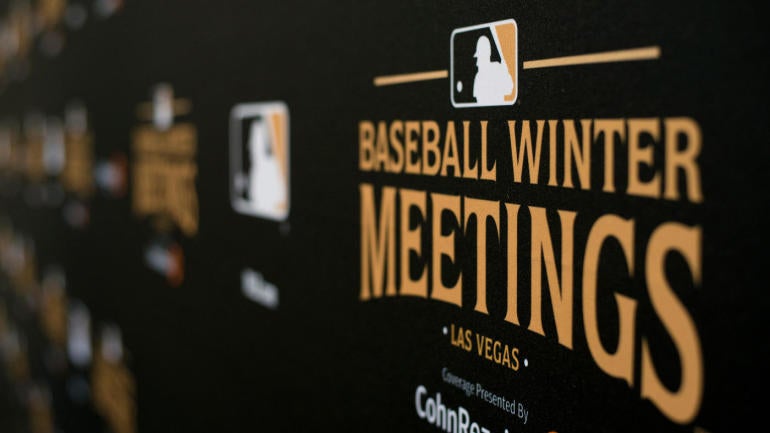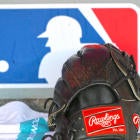
The MLB offseason is in full swing. We're more than a month removed from the Los Angeles Dodgers winning their first World Series title in 32 years, and it's now hot stove season. That means free agent signings, trade rumors and more. It also means a handful of important dates to look out for on the MLB offseason calendar. Below are the dates and deadlines for the coming weeks and months.
Oct. 28: As of 9 a.m. ET on Wednesday, all eligible players are free agents. MLB used to make players file for free agency, which was a waste of time. Now players automatically become free agents once eligible (i.e. six-plus years of service time). It is important to note free agents can not sign with new teams just yet. They have to wait five days for that.
Oct. 30: Most contract option decisions are due on this date. Some contracts specify a different date -- the Yankees must decide on Zack Britton's 2022 club option this offseason, for example -- but the vast majority have to be made three days after the World Series. Club options are controlled by the team, player options and opt-outs are held by the player, and mutual options are pointless. They are a way to move money to next year's payroll.
Some option decisions are no-brainers, like the Marlins picking up their $12.5 million club option for Starling Marte. This offseason's notable contract option decisions include Charlie Morton ($15 million club option), Anthony Rizzo ($14.5 million club option), Brad Hand ($10 million club option), and Dellin Betances ($6 million player option).
Nov. 1: Deadline for teams to tender their eligible free agents the qualifying offer. The qualifying offer is a one-year contract worth the average of the top 125 salaries, or $18.9 million this offseason. To be eligible for the qualifying offer, a player must have spent the entire 2020 season with his team and have never received the qualifying offer previously. The Padres can make Kirby Yates the qualifying offer but not Trevor Rosenthal because he came over in a midseason trade.
Nov. 1: Free agency begins. The five-day exclusive negotiating period will end and free agents will be truly free to negotiate and sign with any team. That said, much like the regular season (or, more accurately, any regular season prior to 2020), MLB free agency is a marathon, not a sprint. We (probably) won't see a rash of signings on Day 1 because MLB is not a salary-capped league, and free agents aren't as worried about getting left out in the cold when cap space runs out. Also, free agency may be slower than usual this winter as teams wait to get a firm grasp on their 2021 revenue projections before committing dollars.
Nov. 2: Finalists for 2020's major awards announced during a live MLB Network broadcast at 6 p.m. ET. Those awards are: Manager of the Year, Rookie of the Year, Cy Young, and Most Valuable Player. Three finalists are announced for each award in each league. MLB has been announcing finalists for a few seasons now in an effort to generate buzz.
Nov. 3: Gold Glove winners announced during a live ESPN broadcast at 7 p.m. ET MLB has already revealed the three Gold Glove finalists at each position in each league.
Nov. 9-12: MLB and the BBWAA will announce 2020 major award winners during this week. Specifically, Rookies of the Year will be announced on Nov. 9, Managers of the Year will be announced on Nov. 10, Cy Youngs will be announced on Nov. 11, and MVPs will be announced on Nov. 12. Announcements will be made during a live MLB Network broadcast at 6 p.m. ET each day.
Nov. 11: Deadline for free agents to accept or reject the qualifying offer. Players who accept the qualifying offer sign that one-year, $18.9 million contract and remain with their team (players who accept the qualifying offer can not be traded until June 15 without their consent). Free agents who reject the qualifying offer are attached to draft pick compensation. Their former team receives a draft pick should they sign elsewhere, and their new team has to forfeit a draft pick and international bonus money. (The exact compensation depends on the contract size as well as the former team's revenue sharing and luxury tax situation.) Trevor Bauer, DJ LeMahieu, J.T. Realmuto, and George Springer are among the free agents who will undoubtedly reject the qualifying offer this winter. They have larger paydays coming.
Nov. 16: The 2021 Hall of Fame ballot will be released on this date. Just the ballot will be announced. The voting results and 2021 Hall of Fame class will be revealed at a later date. Here are the players eligible for this year's ballot. This is year nine of 10 on the ballot for Barry Bonds, Roger Clemens, and Curt Schilling. It's a down year for first-timers, with Mark Buehrle and Torii Hunter representing the top players scheduled to join the ballot.
Nov. 20: Deadline for teams to add eligible minor leaguers to the 40-man roster to protect them from the Rule 5 Draft. Generally speaking, college players drafted no later than 2017 and high school players drafted no later than 2016 are Rule 5 Draft eligible this winter, as are players signed internationally no later than 2016. Among the notable Rule 5 Draft eligible prospects this winter are Tigers righty Matt Manning and Cleveland third baseman Nolan Jones. Expect both (and many others) to be added to the 40-man roster on this date. (There are usually several minor trades on this date as teams get their 40-man roster in order. The Aledmys Diaz for Trent Thornton trade was made on the Rule 5 Draft protection deadline two years ago, for example.)
Dec. 2: Non-tender deadline. This is the deadline for teams to offer their pre-arbitration and arbitration-eligible players a contract for 2021. They don't have to sign them just yet, but they do have to offer a contract. Players who do not receive a contract offer are considered "non-tendered" and become free agents. Notable players are non-tendered every offseason as teams decide their salary outweighs their performance, and the trade market turns up nothing exciting. Cesar Hernandez, Kevin Pillar, Blake Treinen, and Taijuan Walker were among those non-tendered last offseason.
It should be noted the expectation within the industry is there will be far more non-tenders than usual this offseason as teams get their payrolls in order following the shutdown. There are only so many ways to get money off the books, and non-tendering players is the easiest way to do it. If that happens, the free agent market will be flooded with players, and potentially drag down salaries because supply outweighs demand.
Dec. 6-10: MLB's annual Winter Meetings. They were scheduled to be held at the Omni Dallas Hotel in Texas this year, but MLB has canceled the Winter Meetings as an in-person event, and they will be held remotely instead. The annual owners meetings and GM Meetings, which typically take place in November, will take place remotely as well. The Winter Meetings are typically the busiest week of the offseason. They are chock full of trades and free agent signings and rumors.
Dec. 10: Rule 5 Draft. By rule, players selected in the Rule 5 Draft must remain on their new team's big-league roster all season in 2021, otherwise they must go through waivers and be offered back to their original team. With payrolls inevitably coming down next year because of the pandemic, inexpensive talent will be at a premium, so we could see more Rule 5 Draft activity than usual this offseason.
Teams are often looking for middle relievers, bench players, and/or lottery tickets in the Rule 5 Draft, and most players wind up back with their original team. Righty Rony Garcia stuck all year with the Tigers as the No. 1 pick in last offseason's Rule 5 Draft. Joe Biagini, Mark Canha, and Brad Keller are notable recent Rule 5 Draft success stories.
Jan. 15: Deadline for teams and arbitration-eligible players to submit salary figures. The player files what he believes he should be paid in 2021 while the team counters with that they believe the player should be paid in 2021. It is important to note the two sides can still agree to a contract of any size even after filing salary figures. The vast majority of arbitration-eligible players agree to a contract before filing salary figures. Matt Swartz and MLB Trade Rumors released their salary arbitration projections in mid-October. Their model has proven to be quite accurate over the years, though the shutdown and short 60-game season really complicates things this year.
Jan. 15: The 2021 international signing period opens. The signing period typical runs July 2nd to June 25th each year, but MLB pushed it back because of the pandemic. (They're also laying the ground work for an international draft by setting the signing period neatly in one calendar year.) Here is MLB.com's list of this year's top 30 international prospects. Yoelqui Cespedes, Yoenis' half-brother, is the No. 1 prospect this year.
Mid-January: 2021 Hall of Fame class announced. The ballot is revealed in November, votes are compiled in the following weeks, then the results are announced in the dog days of the offseason. Schilling appeared on 70.0 percent of submitted ballots last year, just below the 75.0 percent threshold needed for induction, and he seems like a good bet to get over the hump this year. There's a good chance Schilling will be the only Hall of Fame selection this offseason.
Induction weekend is held each July in Cooperstown, New York, but the 2020 event was canceled because of the pandemic. Last year's four Hall of Fame selections (Derek Jeter, Marvin Miller, Ted Simmons, Larry Walker) will be honored alongside the 2021 Hall of Fame class next July.
Early-to-mid February: Arbitration hearings. Inevitably, a few arbitration-eligible players and their teams are unable to come to terms on a contract, and they wind up in front of an arbitration panel. Each side makes their case and the three-person panel picks either the salary the player filed or the salary the team filed, nothing in between. Again, teams and players can work out a contract of any size prior to a hearing, even after filing salary figures. Josh Hader and Jose Berrios were among the notable players to go to an arbitration hearing last year.
Feb. 27: Spring training officially begins. You can check out the full schedule here. MLB's release does note that the schedule is "subject to change," which sounds more ominous than usual. That said, MLB signaled it intends to play a regular, full-length campaign next year after being forced to settle on an abbreviated, 60-game sprint because of the pandemic.
April 1: And here's Opening Day 2021. All 30 clubs are slated to be in action, with 10 of the 15 games featuring divisional play.


















